Supports for various groups
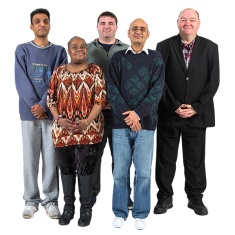
Culturally and linguistically diverse is used to describe people who identify as belonging in some way to a non-Australian culture.
Culturally and linguistically diverse is known as CALD for short.
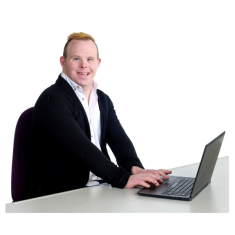
For more information about CALD people visit https://www.idmhconnect.health/
culturally-and-linguistically/ER
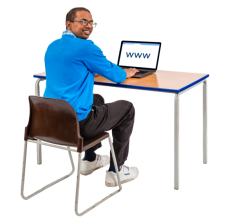
Below are services and supports for CALD people.
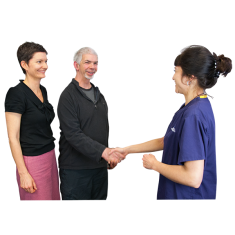
The Multicultural Disability Advocacy Association provides advocacy services for people with disability from CALD communities.
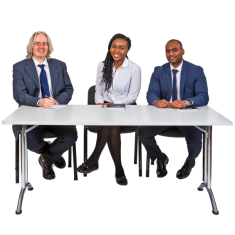
The Multicultural Disability Advocacy Association also supports people with NDIS appeals and reviews.
An appeal is when you ask someone to have another meeting.

For more information about the Multicultural Disability Advocacy Association visit http://mdaa.org.au/services/
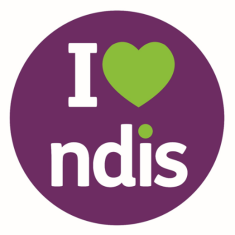
The Ethnic Community Services Co-operative provides
- NDIS services and information

- Advocacy
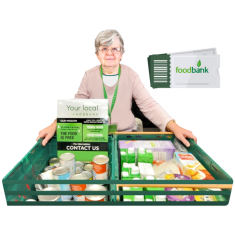
- Volunteer projects for people with disability
When you volunteer you give your time to help someone.
You do not get paid for your help.

They also provide
- Support for people looking for work experience and paid work

For more information about the Ethnic Community Services Co-operative visit https://ecsc.org.au/
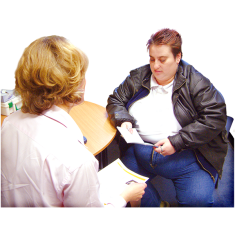
Open Minds has support services for people from CALD communities with mental health problems.
For more information about Open Minds visit https://www.openminds.org.au/
services/supporting-culturally-and-linguistically-diverse-people-cald
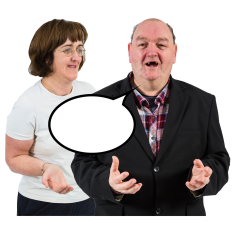
Action on Disability within Ethnic Communities has services and information including
- Advocacy support

- Videos about the NDIS in different languages
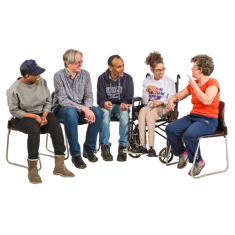
- Social support groups
A support group is a small group of people you meet with to communicate about mental health.
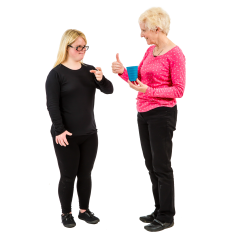
To communicate is how you understand and share your feelings or information.

For more information about Action on Disability within Ethnic Communities visit https://adec.org.au/

Kin provides advocacy support for people with disability from CALD communities.
For more information about Kin visit https://kinadvocacy.org.au/

The Federation of Ethnic Communities Councils of Australia has a program that supports people from CALD backgrounds to access the NDIS.
For more information about the program visit https://fecca.org.au/
communityconnectors/
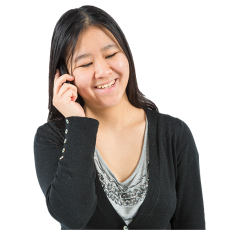
Translation and interpreter services
Translating and Interpreting Service provide onsite and on phone interpreting.
To contact the service
- Call 131 450

NSW Health Care Interpreting Services have free and confidential interpreters when you go to hospital for your care.
Confidentiality means that information about you must not be shared with others unless you say that it is OK to share.

For more information about the NSW Health Care Interpreting Services visit https://www.health.nsw.gov.au/
multicultural/Pages/Health-Care-Interpreting-and-Translating-Services.aspx
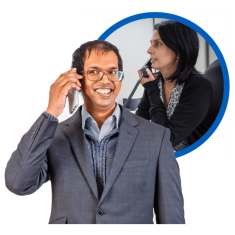
Lifeline Australia provides crisis support in different languages.
You can ask to speak to someone in your language.
To contact Lifeline
- Call 13 11 14
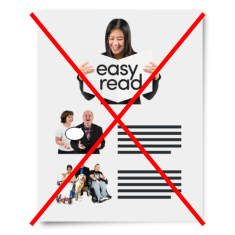
Translated information for people from CALD communities
Below is a list of websites with information in different languages.
The information from the websites below is not in Easy Read but can still be helpful.
If you want you can ask someone to support you to read them.

Embrace Multicultural Mental Health provides mental health information in different languages.
For more information visit https://embracementalhealth.org.au/
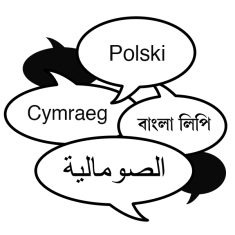
The Multilingual Disability Hub has information on disability and the NDIS in different languages.
To see the information visit https://www.cesphn.org.au/images/
MDH_General.pdf
Amparo Advocacy Inc has information on the rights of people with an NDIS plan.
Rights are rules about how everybody should be treated fairly.
A right is something everyone has.
To read the information visit https://www.amparo.org.au/ndis-and-participants-rights/

Your NDIS plan says what supports you need.
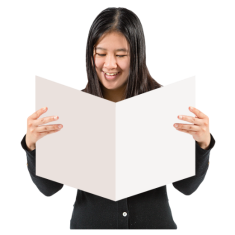
The Cerebral Palsy Alliance has some information translated into different languages.
To read the information visit https://cerebralpalsy.org.au/
resources-in-other-languages/

Centrelink information about the Disability Support Pension has been translated into different languages.
To read the information visit
https://www.servicesaustralia.gov.au/
disability-support-pension-translation
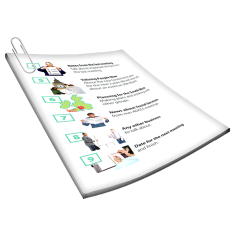
UnitingSA has factsheets to help CALD communities to access the NDIS.
To read the factsheets visit https://unitingsa.com.au/community-services/ndis-disability-support/

The Transcultural Mental Health Centre has mental health information in different languages.
To read the information visit https://www.dhi.health.nsw.gov.au/
transcultural-mental-health-centre-tmhc/resources/in-your-language
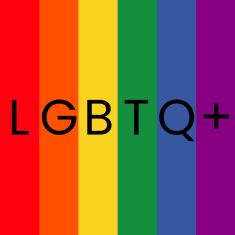
LGBTQ+ stands for lesbian, gay, bisexual, transgender and questioning.
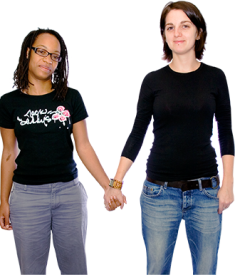
Lesbian means women who are attracted to other women.

Gay means men who are attracted to other men.
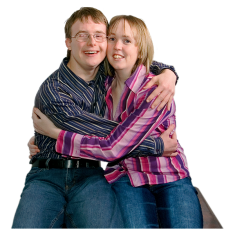
Bisexual means people who are attracted to both men and women.
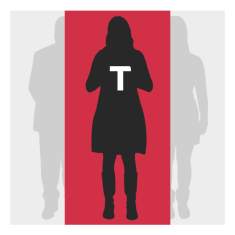
Transgender refers to people who are now a different gender to the one that they were given when they were born.
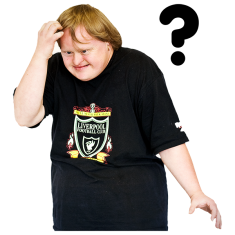
Questioning is if you feel that you might not be heterosexual but you are not sure.
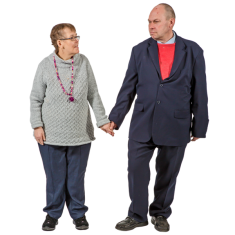
A heterosexual person is
- A woman who is attracted to men
or
- A man who is attracted to women

For more information about LGBTQ+ people visit https://www.idmhconnect.health/
lgbtq-people/ER

Below are services and supports for LGBTQ+ people.
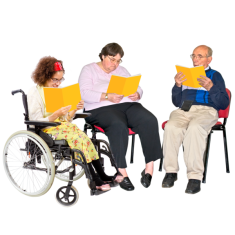
Family Planning NSW has a Sexuality and Disability Service.
The sessions are included in your NDIS plan.
For more information visit https://www.fpnsw.org.au/factsheets/
individuals/disability/sexuality-and-disability-service
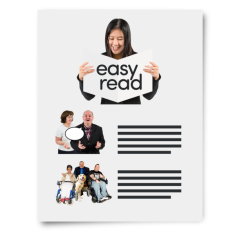
Family Planning NSW also has Easy Read information about
- Relationships
- Sexual health
- Sexual identity
To read the information visit https://www.fpnsw.org.au/factsheets/
individuals/disability/all-about-sex
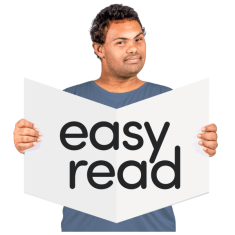
CHANGE has an Easy Read guide on being LGBTQ+.
CHANGE is a group that is not in Australia but the information might still be helpful.
For more information visit https://www.changepeople.org/our-work/lgbtq-an-easy-read-guide

Twenty10 helps people in NSW between 12 and 25 years old who identify as LGBTQ+.
For more information about Twenty10 visit https://www.twenty10.org.au/
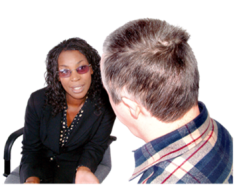
Twenty10 has services for everyone, not just people with intellectual disability.
Twenty10 provides
- Counselling
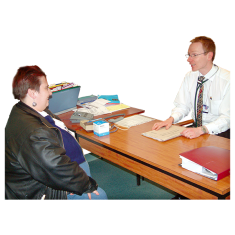
- Mental health support
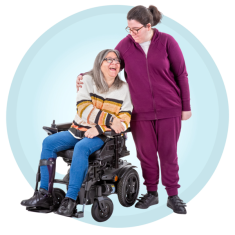
- Support for social skills

QLife is a chatline that provides free LGBTQ+ peer support and referrals.
You can
- Call QLife on 1800 184 527 between 3pm and 12am midnight every day
- Chat to QLife online https://qlife.org.au/

Relationships and Private Stuff has counselling and education to support you.
Their services can be included in your NDIS plan.
For more information about Relationships and Private Stuff visit https://www.relationshipsand
privatestuff.com/
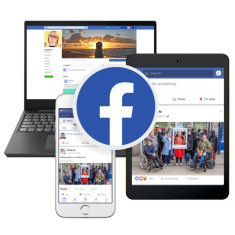
Sydney Queer and Disability Community is a group on Facebook that raises awareness for LGBTQ+ people with disability.
For more information about the community group visit https://www.facebook.com/
queeranddisabled

Rainbow Rights and Advocacy is a self-advocacy group.
A self-advocate is someone who speaks up for themselves.
Rainbow Rights and Advocacy is run by and for LGBTQ+ people with intellectual disability.
For more information visit https://rainbowrights.com.au/

There is more information on the next page.
Click Next page below.